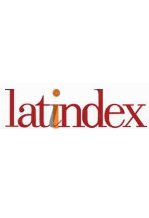Do Piketty de “O Capital no Século XXI” ao de “Capital e Ideologia”: em busca de uma proposta unificada de medidas de políticas públicas voltadas para a redução da desigualdade
Keywords:
Inequality, Tax progressivity, Efficiency, PikettyAbstract
This article seeks to compare Piketty's two great books (2014 and 2020) on the issue of inequality, seeking to capture changes in his thinking on the subject, specifically with regard to the proposition of public policies. Although both works are known for the proposal of a strong increase in the progressiveness in the collection of three types of tax (inheritance, income and capital), it is not difficult to find clear elements of rupture, especially when the author proposes the rationalization of various types of public spending that impact inequality (health, education, etc.), present in the first book, which completely disappears in the later work. Despite the differences noted, this article seeks to contribute to the debate by proposing a joint analysis of Piketty's proposals, which reconciles the search for efficiency in public spending present in the first book with the broader scope of measures in the second (basic income, carbon tax, etc.), always based on an overview of the public budget. From this general framework of proposals, it is considered that the author, in addition to being a mandatory reference in the theoretical and analytical debate on inequality, can also be better recognized for his contribution to the discussion on public policies, including by incorporating relevant contributions from other authors.
Downloads
Downloads
Published
How to Cite
Issue
Section
License
Copyright (c) 2023 Robson Grassi

This work is licensed under a Creative Commons Attribution-NonCommercial 4.0 International License.
The copyright of papers published in the Revista de Economia Mackenzie belongs to the authors, who grant to the Mackenzie Presbyterian University the exclusive rights to publish the content. Total or partial reproduction is prohibited without due authorization of the Editorial Committee, except when it is previously authorized.










